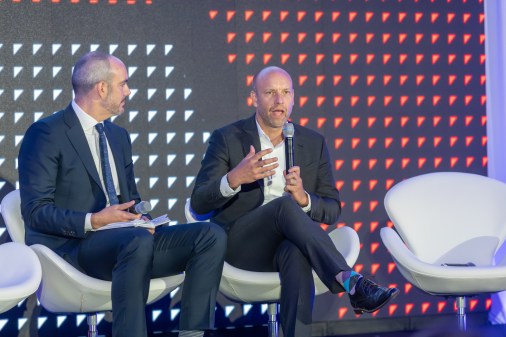USDA releases RFQs for Phase II of its IT Modernization Centers of Excellence

The Department of Agriculture, led by a team at the General Services Administration, issued solicitations this week for Phase II of its IT Modernization Centers of Excellence initiative.
In this second phase, USDA plans to award contracts across the same five focus areas as Phase I — IT Infrastructure Optimization, Cloud Adoption, Customer Experience, Data Analytics and Contact Center — and an additional contract for support of its program management office.
In December, with the support of the White House’s Office of American Innovation, USDA kicked off GSA’s COE effort serving as a “lighthouse” for IT modernization at other agencies. The intent of the IT Modernization Centers of Excellence is that bringing in help and expertise from the private sector will jumpstart IT modernization within the federal government — first at USDA, and then replicating that success at other agencies in need of modernization support. It’s n idea the White House, and specifically Chris Liddell as director of strategic initiatives, had been tossing around publicly since last summer.
Whereas the first phase “was a comprehensive Department-wide assessment and planning effort,” according to the new solicitations, the second will be the “implementation/execution phase,” bringing to life the work done in Phase I.
Most of the requests for quotes were posted to GSA’s eBuy website, and therefore inaccessible to the general public. An industry source, however, provided several of the solicitations to FedScoop. GSA did not respond to FedScoop’s request for comment on the procurement prior to publication.
The most robust of the bunch, the solicitation combining the infrastructure optimization and cloud adoption focus areas, aims to develop “multiple pools of support to assist USDA in cloud adoption, infrastructure optimization, data center consolidation, application migration, cloud portfolio management, and DevSecOps support.”
“This structure is designed to compartmentalize the complexity of migrations, and reduce uncertainty for both industry and the government; allowing for rapid adoption of routine or automatic, services — leveraging industry innovation and expertise — as well scaling contracts to support iterative delivery by building in research, discovery, and prototyping as outlined in the Digital Services Playbook,” the RFQ says.
Specifically, there will be four pools focused on application rehosting, replatforming, “DevSecOps Resources to support a future Refactoring” and support of a Cloud Platform Services Organization.
“This acquisition will provide USDA with an enterprise-wide vehicle of expertise and capabilities for modernizing and migrating a portfolio of over 1,000 applications, across ~20 data centers, all by end of Fiscal Year 2019,” it says. The plan, it explains, is to consolidate down to just two enterprise data centers by the close of fiscal 2019.
There are also solicitations for data analytics capacity building, contact center support and development of a “CX Digital Support Service,” which all largely build off the work done in the first phase of the project.
The additional solicitation in support of the CoE program management office looks to turn it into a business modernization office. It will have the objective of bringing the CoEs together, the solicitation says, “by coordinating strategic vision and project delivery, to ensure program and stakeholder coordination, strategic alignment, organizational change management, effective decision making and risk mitigation mechanisms, and ultimately successful CoE deliveries.”
Industry has until Aug. 10 to bid on the solicitations.
While the CoEs address a wide swath of IT modernization at USDA, the White House’s Matt Lira argued in June that what they all have in common is creating a better-functioning government.
“We are ultimately in the business of restoring the public’s faith in these institutions themselves,” Lira said.
To catch up on Phase I of the CoEs, read FedScoop’s exclusive inside walkthrough of that first iteration.






